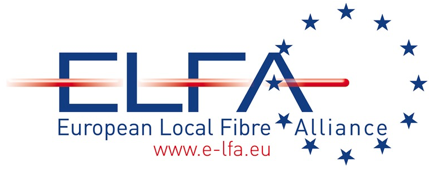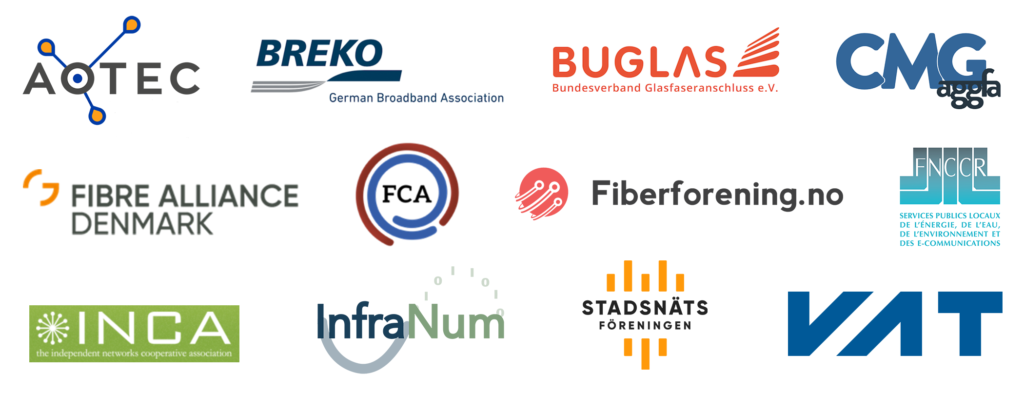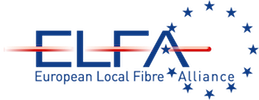
ELFA Position Paper on European telecoms consolidation
The European Commission´s white paper “How to master Europe’s digital infrastructure needs” urges the creation of a true EU Single Market for telecoms. Allegedly, this implies incentives for cross-border consolidation.
With the US telecom market as an example and point of reference, consolidation is seen as an instrument to build up scale for fewer telecom operators and an effective way to raise capital and thereby increase investments in digital infrastructure.
First of all, there do not seem to be clear facts to support that the US Telecom Market should work significantly better than european markets. . Available data indicates that the European Telecom market is already competitive and performing well. According to the ITU and OECD, consumer prices for mobile and fixed broadband are generally lower in the EU compared to the US, and fibre deployment is more extensive in most European countries. Additionally, mobile data prices in the EU, when adjusted for purchasing power, are among the lowest in the world. Given these facts, the argument that Europe is falling behind due to market fragmentation lacks substantial evidence.
Also, regarding the need for increased investment in new digital infrastructure, including fiber networks, it seems somewhat one-sided to primarily focus on consolidation. Instead, the Commission’s primary focus should be on attracting other and new investors to the market. This could include, for example, private investors, pension funds, or energy companies, as has been successfully demonstrated in other countries. In other words, the approach should involve thinking differently and thus attracting actors who take a long-term perspective in their investment horizon rather than supporting former telecom monopolies who for decades have tried to shield their legacy networks and neglected in due time to invest into future proof infrastructure.
Today we have 27 national markets in the EU that differ considerably when it comes to supply and demand conditions, business models, consumer behaviour, network achitectures, levels of coverage of very high-capacity networks, and regulatory approaches that reflects national differences in implementation and regulatory practice.
Against this factual background, ELFA therefore foresees that any politically triggered initiatives that try to facilitate cross-border consolidation will most likely fail and furthermore ELFA rejects such initiatives. Basically, ELFA believes that all issues regarding cross-border consolidation are best dealt with on market terms and within the existing framework of national and European antitrust and competition law.
Given the historically based fragmented and complex structure of the telecom markets, ELFA believes that there will still be strong national telecom markets beyond 2030 as consumers will still mainly be orientated towards local, regional and nationally derived services and networks.
ELFA’s members currently represent more than 800 operators, building local and regional fibre networks in both urban and rural areas across Europe, already reaching more than 50% of all European premises. The large variety of members that ELFA represents for various European countries shows, that having diversity on national telco markets has successfully fostered fibre deployment in the past and still does. Also with regard to end-customers, having multiple possibilities for chosing providers, is a benefit – also in terms of price competition.
In addition and for the following reasons, ELFA wants to express doubts about the appropriateness of politically motivated initiatives to promote and increase cross-border consolidation.
Security and resilience
Given the criticality of the communications infrastructures and networks and in view of the fast-evolving threat landscape, ongoing considerations on security and resilience may not call for more cross-border consolidation and more complex and opaque ownership as the most obvious solution.
ELFA believes that local and regional ownership plays a crucial role in ensuring that critical infrastructure remains operational even in times of crisis. Decentralized networks allow for greater flexibility and adaptability, ensuring that vital communication services can be maintained independently in case of major disruptions. This approach enhances national security by reducing dependencies on centralized systems that may be more vulnerable to cyber threats, geopolitical risks, or infrastructure failures.
To strengthen Europe’s overall resilience, policies should support diversified ownership structures and local investment rather than fostering large-scale cross-border consolidation.
Building citizens trust in a digitalized society
Digital technology is changing people’s lives and EU’s digital strategy aims to make this transformation work for European citizens and businesses. Building citizens trust in a digitalized society is of crucial importance for this transformation to succed.
ELFA believes that transparency and simplicity will drive citizen trust in digital services. It can be more trustworthy for citizens to use new digital services from companies that are close to them, be it geographically or through shared values.
Competition distortion
It seems obvious that politically triggered cross-border consolidation will result in market developments where we will see fewer telecom operators and higher concentration. Past experiences in the EU telecoms sector have demonstated that less competition leads to less investment, less innovation and poorer consumer welfare. Furthermore, fair market competition also leads to faster and wider fiber deployment within the Member States.
ELFA believes there is a significant risk that this may both counteract existing as well as new regulatory measures to increase competitition in telecommnications markets for the benefit of citizens and businesses.
Scale and effective competition in telecom markets
ELFA recognises that scale can be a necessity for companies to attract investment capital, to meet increased regulatory requirements and to be financially equipped to make ongoing technological upgrades of the electronic communications networks.
Regardless of this, ELFA do not see politically forced initiatives to promote cross-border consolidation as the right way to move forward. Such initiatives may have negative consequences in terms of less competition and higher consumer prices.

European Local Fiber Alliance (ELFA) är den delade rösten från alternativa och privata och offentliga lokala och regionala fiberoperatörer i EU. ELFAs medlemmar representerar mer än 800 operatörer som bygger fibernät i både stad och landsbygd, och når redan mer än 50 % av alla europeiska lokaler.

